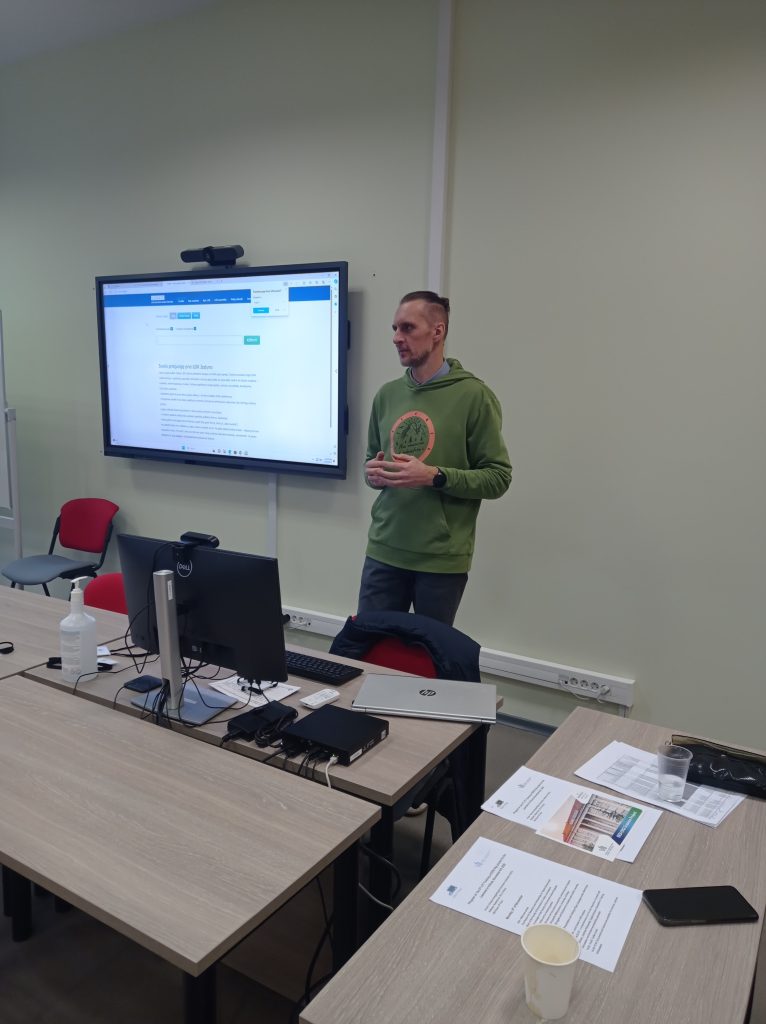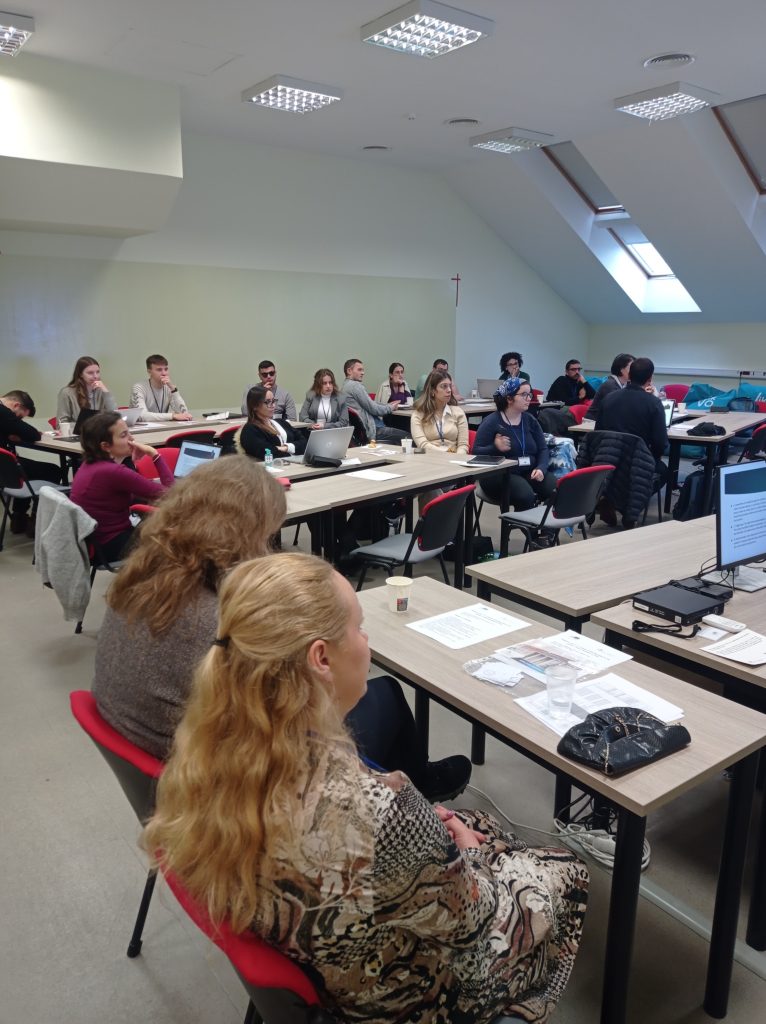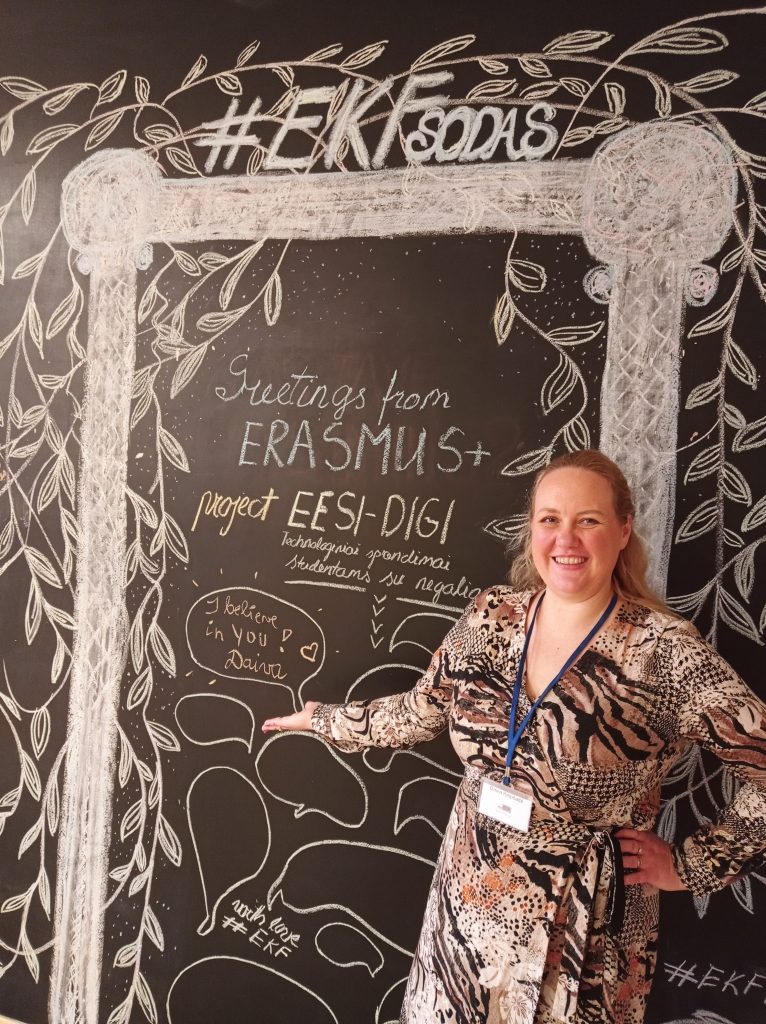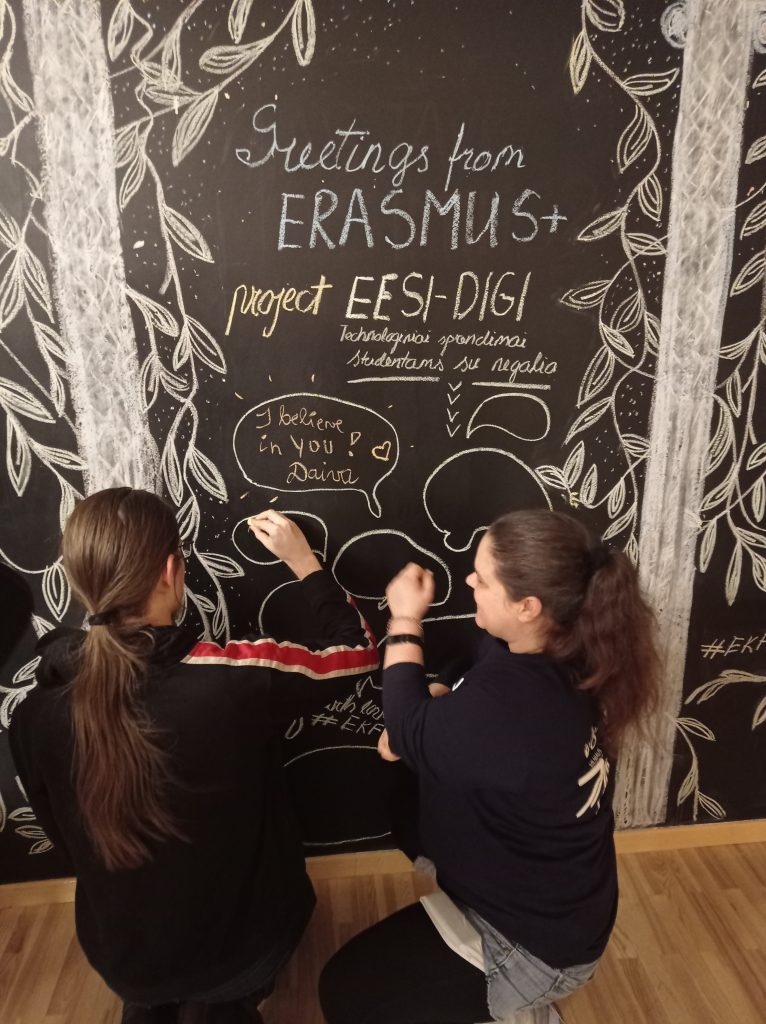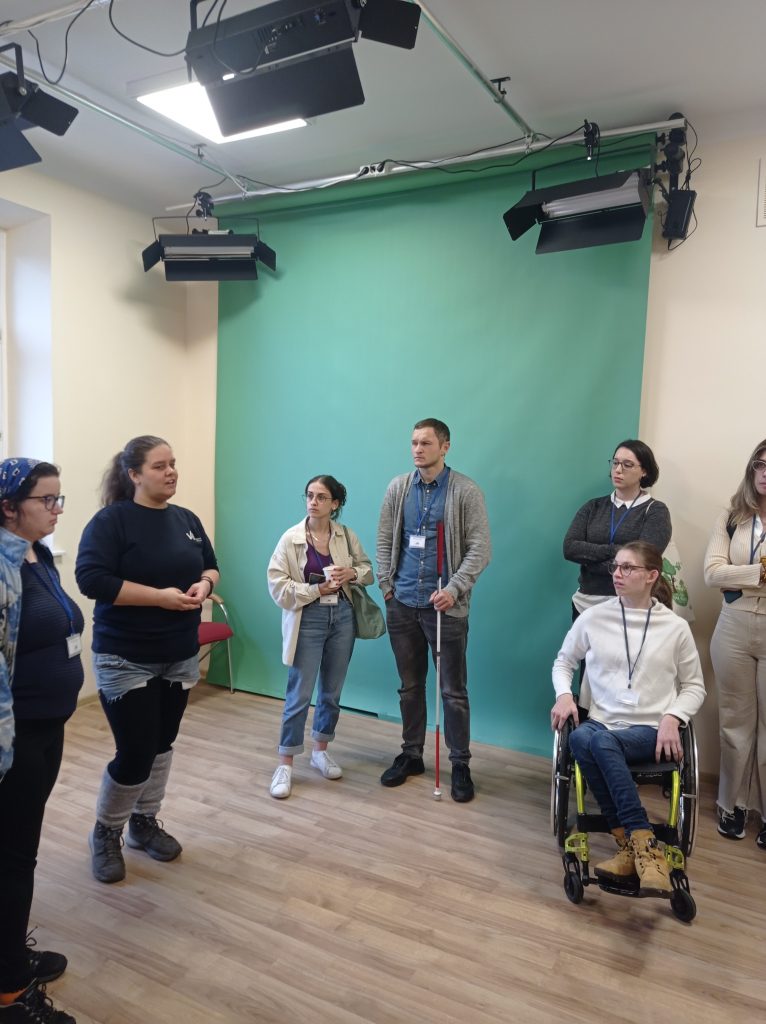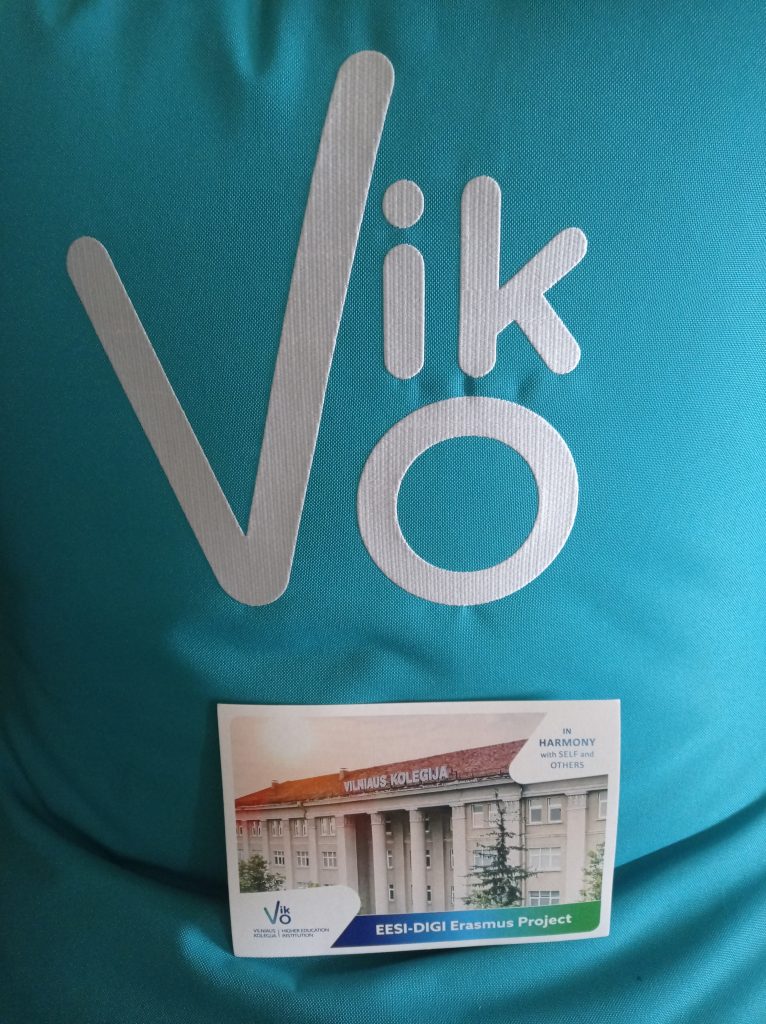Empowering Students with Disabilities: Certificates Conferred Following Specialized Training
From November 6th to 8th, 2023, the ERASMUS+ project “Educational Empowerment and Social Inclusion of Students with Disabilities through Digital Solutions and Assistive Technologies (EESI-DIGI)” hosted an impactful training program. This three-day event, held at the Faculty of Economics of Vilnius College of Economics, saw the participation of students with disabilities and educators from five countries: Greece (project coordinators), Hungary, Lithuania, Italy, and Spain. The project’s central objective was to cultivate digital competences, facilitating students’ successful academic journey and seamless integration into the workforce.
A total of five students with disabilities from each partner country attended this training, representing diverse conditions, including blindness, mobility impairments, multiple sclerosis, autistic spectrum disorder, and ADHD. Following the successful completion of an examination on November 8th, these participants were presented with certificates as a testament to their completion of a course focused on digital content accessibility. These certificates hold the significance of verifying their foundational understanding of digital content accessibility, with applicability in both educational institutions and workplaces.
The training was conducted with the guidance and facilitation of the following VIKO professionals: Daiva Kelpšaitė, Project Manager of the faculty of Economics; Gitana Mečėjienė, Department Head specializing in Banking; Svetlana Kubilinskienė, an Associate Professor in Electronics and Informatics; Valdona Judickaitė – Žukovskė; and Jolanta Mačėnienė. Daiva Kelpšaitė, the Project Manager of the Faculty of Economics at VIKO, expressed her delight with the outcome, emphasizing that speakers were meticulously selected based on their expertise in IT tools and firsthand experience with disabilities. The training was expertly led and facilitated by accomplished professionals within the Faculty, ensuring a high standard of education delivery.
The training program featured an array of notable lectures delivered by esteemed speakers from Greece and Lithuania. Lecturers Evgenia Orfanou and Chrysanthi Militsopoulou from the University of Patras, Greece, discussed creating accessible documents for students with special needs and explored the features of the Windows operating system. Justinas Kilčiauskas, a blind lecturer, shared insights into internet accessibility and best practices for job searching with visual impairments. He also highlighted his work in programming and testing websites for accessibility for people with disabilities.
Veronika Kulikauskienė, a student of sign language pedagogy, shared her personal experiences with ADHD and offered solutions to assist individuals with this diagnosis. Mantrimas Danielius, the head of the VIKO Gesture (Sign language) Centre, gave a brief presentation of the center’s activities, including a sign language dictionary in virtual space. He also invited participants to visit the film studio where sign language interpreters work.
On the second day of the training, Martynas Vitkus, an Accessibility Specialist at Swedbank AB, conducted the practical training. The practical component of the training included hands-on exploration of mobile applications, communication tools, and lively discussions on social networking within the context of disabilities.
On the third day of the training, students underwent an examination on Moodle, followed by a comprehensive review and reflection on the training experience. Certificates were awarded to students who demonstrated mastery of the material and tasks. This training not only imparted valuable knowledge but also provided tangible recognition of students’ expertise in digital content accessibility.
